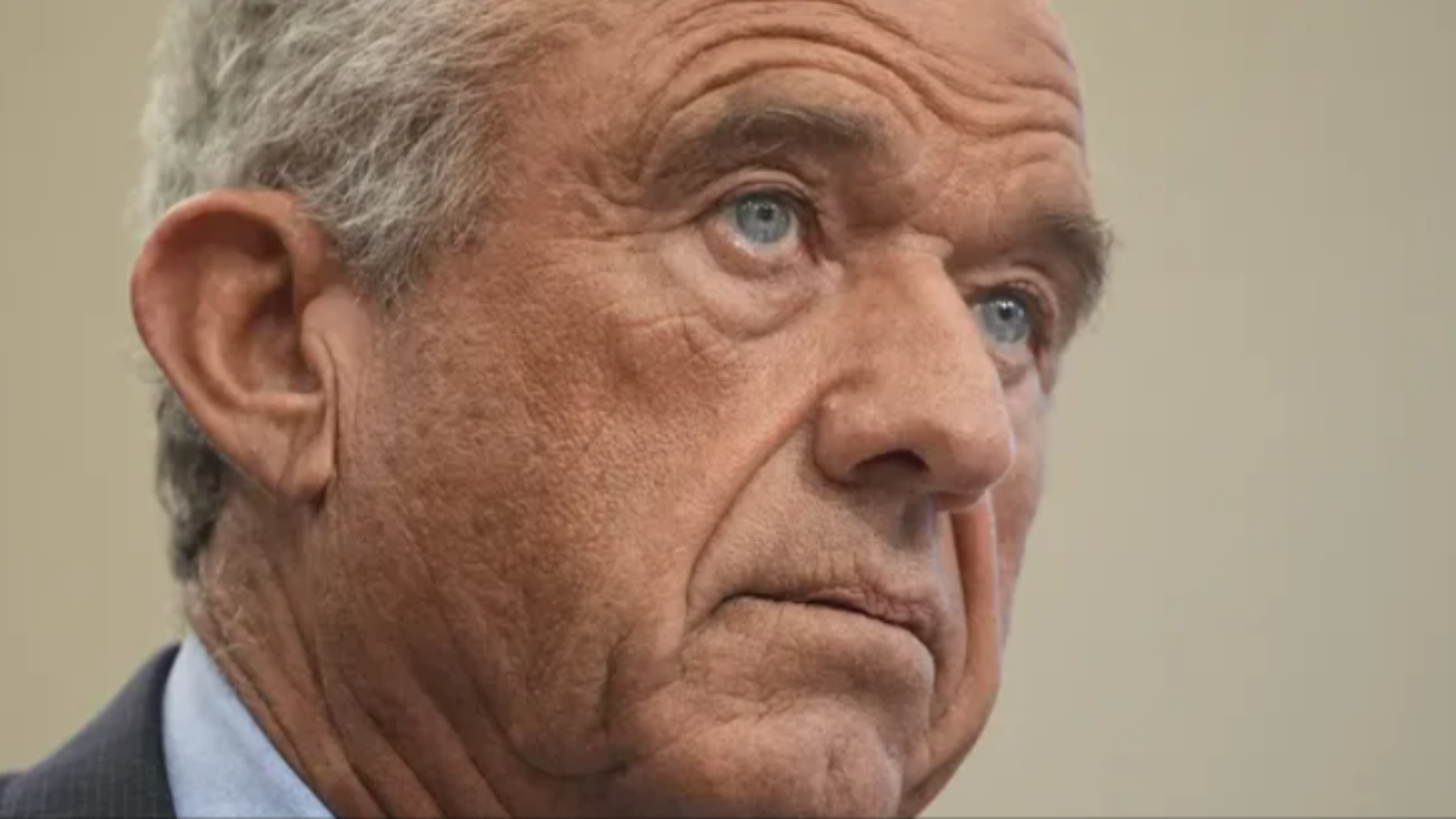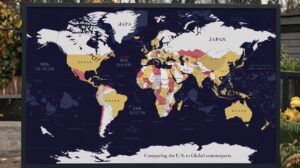Robert F. Kennedy Jr., a prominent figure in health debates, recently stated, “I don’t think people should be taking medical advice from me.” This candid admission has sparked widespread discussion across the USA about the role of public figures in guiding health decisions. In this article, we unpack what RFK Jr.’s statement means, the impact on public health discourse, and why Americans need reliable, evidence-based advice from trusted sources.
What RFK Jr. Actually Said: The Context Behind the Statement
RFK Jr. made this statement during a recent interview while addressing concerns about his controversial views on vaccines and medical advice. By expressing caution about following his medical guidance, he emphasizes personal responsibility and the importance of consulting qualified healthcare professionals.
Key takeaway: This shows a rare admission from a public figure often involved in vaccine debates, encouraging readers to seek expert medical advice rather than relying on celebrity opinions.
Why Public Figures’ Medical Advice Can Be Risky
Public figures like RFK Jr. often influence millions of Americans, but they may lack formal medical training or access to peer-reviewed research. This can lead to the spread of misinformation or confusion, especially around sensitive topics like vaccines, treatments, or emerging health risks.
| Factor | Public Figures (e.g., RFK Jr.) | Qualified Medical Experts |
|---|---|---|
| Medical Training | Often none or limited | Extensive (MD, PhD, etc.) |
| Basis of Advice | Personal belief, anecdote | Evidence-based, peer-reviewed |
| Accountability | Low | High, subject to regulations |
| Impact on Public | Wide, can cause misinformation | Generally accurate and trustworthy |
The Impact of RFK Jr.’s Statement on Vaccine and Health Discussions in the USA
The statement has stirred the public debate around vaccine safety and health advice, especially amid ongoing COVID-19 concerns and vaccine hesitancy in parts of the USA. It highlights the need for Americans to critically evaluate sources and prioritize expert consensus.
- Data Point: According to the CDC, vaccine misinformation has contributed to a 10% decrease in vaccination rates in some US regions over the past two years.
- RFK Jr.’s caution encourages Americans to be more discerning.
How to Find Reliable Medical Advice — Trusted Resources in the USA
In today’s fast-paced digital world, finding trustworthy medical advice can feel overwhelming, especially with the sheer volume of conflicting information available online. For Americans seeking accurate health guidance, it’s crucial to rely on sources that are backed by scientific research, verified by healthcare professionals, and regularly updated to reflect the latest medical knowledge. Trusted institutions like the Centers for Disease Control and Prevention (CDC), the National Institutes of Health (NIH), and reputable medical organizations provide reliable information that helps individuals make informed decisions about their health.
Additionally, consulting licensed healthcare providers, such as primary care physicians and specialists, ensures personalized and evidence-based care tailored to individual needs. When using online resources, it’s important to look for websites with transparent authorship, clear references to peer-reviewed studies, and endorsements from recognized medical bodies. By prioritizing these credible sources, Americans can navigate the complex landscape of health information confidently and safeguard their well-being.
Americans should rely on trusted sources for medical guidance:
- CDC (Centers for Disease Control and Prevention)
- FDA (Food and Drug Administration)
- American Medical Association (AMA)
- Local healthcare providers
These sources provide regularly updated, evidence-based health information.
Why This Matters: Protecting Your Health with Accurate Information
Accurate medical information is the foundation of good health. When people rely on trustworthy advice, they are better equipped to make decisions that prevent illness, manage chronic conditions, and respond appropriately during health emergencies. Misinformation, on the other hand, can lead to harmful choices, delayed treatments, or unnecessary anxiety. In a country like the USA, where healthcare options are diverse and sometimes complex, having access to clear, fact-based medical guidance is essential to safeguarding your well-being and that of your loved ones.
Moreover, during public health crises such as pandemics or outbreaks, accurate information becomes even more critical. It helps individuals understand preventive measures, recognize symptoms early, and follow protocols that protect communities. By valuing and seeking out verified medical advice, Americans not only improve their personal health outcomes but also contribute to a healthier society overall. This underscores why knowing where and how to find reliable medical information is a vital skill in today’s world.
Comparing Sources of Medical Advice
| Source Type | Pros | Cons | Recommended Use |
|---|---|---|---|
| Public Figures | Easy to understand, widely known | Often biased, unverified | Supplement with expert advice |
| Medical Experts | Evidence-based, regulated | Can be technical | Primary source for medical decisions |
| Official Health Agencies | Verified, updated regularly | Sometimes slow to update | Best source for policy and safety info |
| Social Media | Fast dissemination | High misinformation risk | Use cautiously, verify facts |
Key Facts and Data to Understand Medical Advice in Today’s USA Health Landscape
Understanding the complexity of medical advice begins with recognizing how the healthcare system in the USA functions and the sources that Americans trust the most. According to a 2023 Pew Research Center survey, about 74% of Americans say they trust their doctors “a lot” or “somewhat”, making healthcare professionals the most trusted source of medical information. This trust level is critical because it directly influences how people follow treatment plans and preventive measures recommended by their doctors.
Medical misinformation remains a serious challenge. The World Health Organization (WHO) has identified misinformation as one of the top threats to global health. In the USA, social media platforms are a primary vector for spreading false health claims, contributing to vaccine hesitancy and confusion around treatments. A 2024 CDC report showed that over 30% of adults had encountered inaccurate health information online in the past year, underscoring the need for clear, credible communication from trusted entities.
Access to reliable medical advice also varies significantly across the country. The USA faces disparities in healthcare access based on geography, income, and education. For example, rural areas often lack sufficient healthcare providers, leading many residents to rely on online resources or informal advice. The Health Resources & Services Administration (HRSA) reports that over 60 million Americans live in medically underserved areas, emphasizing the growing role of digital health tools and telemedicine as alternative sources of reliable information.
Recent technological advancements have improved the quality and accessibility of medical advice. Telehealth visits surged during and after the COVID-19 pandemic, with a 2023 survey by McKinsey & Company revealing that approximately 38% of adults used telemedicine services at least once in the past year. These virtual consultations provide timely, personalized medical guidance, helping reduce misinformation by connecting patients directly with licensed professionals regardless of location.
Finally, ongoing public education campaigns are essential to empower Americans to identify trustworthy medical advice. Organizations like the CDC and NIH continually update their websites with user-friendly, evidence-based resources designed for the general public. The National Library of Medicine’s MedlinePlus service, for example, offers over 1,000 health topics explained in plain language, making accurate health information accessible to millions of users daily.
Conclusion: What RFK Jr.’s Statement Teaches Us About Medical Advice
RFK Jr.’s recent statement serves as a critical reminder: medical advice should come from qualified professionals, not celebrities or influencers, no matter RFK Jr.’s admission that people should not blindly take medical advice from him highlights a vital lesson: the importance of critical thinking and verifying health information from credible sources. No matter how influential a figure may be, medical advice should always be grounded in scientific evidence and professional expertise. This humility encourages individuals to seek guidance from licensed healthcare professionals and trusted organizations rather than relying solely on opinions or unverified claims.
Ultimately, RFK Jr.’s statement reminds us that protecting our health is a personal responsibility that involves being informed, cautious, and proactive. By prioritizing accurate information and consulting qualified medical experts, Americans can make better decisions for their well-being and contribute to a healthier, more informed society. How trusted they seem. For the health and safety of every American, it’s vital to seek out reliable, evidence-based guidance.
For the latest health news and reliable updates, subscribe to trusted news sites like USnewsSphere.com. Stay informed, stay safe, and always choose evidence-based advice.
[USnewsSphere.com / myc.]





